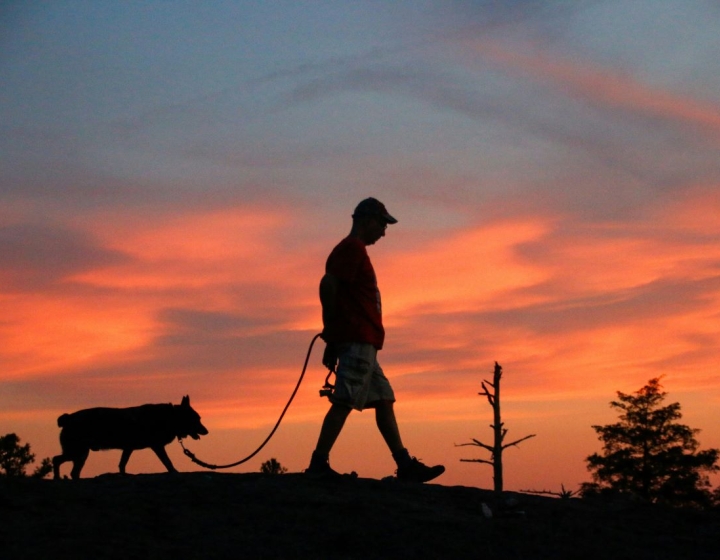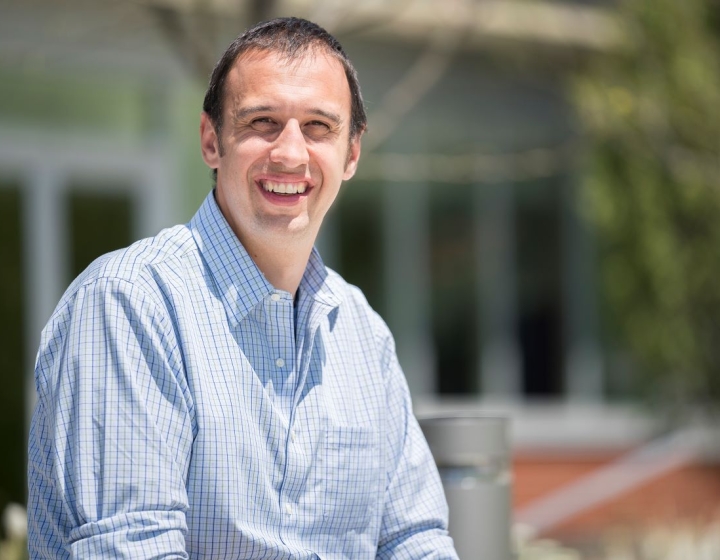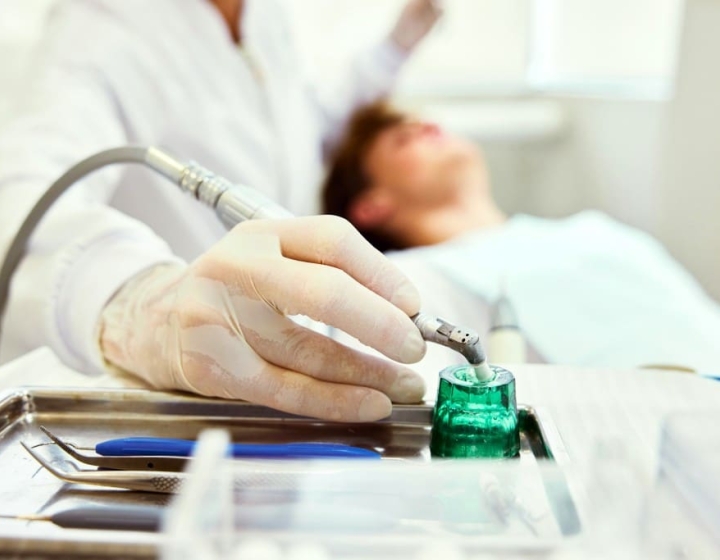Caring for the Best: Cornell at Westminster
From the velvety jowls of the Neopolitan Mastiff, to the slender frame of the Saluki, to the bouffant hairdo of the Dandie Dinmont Terrier, doggy diversity is on its most glorious display at the Westminster Kennel Club Dog Show. But whether a pup is of sporting, working or toy ilk, they will all need veterinary care at one point or another — and, for the best of the best show dogs this year, Cornell veterinarians were there to provide it.
Cornell University College of Veterinary Medicine and its Stamford, Connecticut-based satellite clinic Cornell University Veterinary Specialists (CUVS) are now the official provider of veterinary care at the Westminster Kennel Club Dog Show as part of a multi-year deal. Cornell veterinarians and students made their debut at the event last week, staffing both an informational booth and a veterinary medical care stations at the three-day event.
“It was a tremendously rewarding and educational opportunity for our veterinarians and students to provide care to the show dogs and consultation to their owners,” said Lorin D. Warnick, D.V.M., Ph.D. ’94, the Austin O. Hooey Dean of Veterinary Medicine. “We were honored to be able to showcase and share our expertise with such a passionate community of dog lovers, and we look forward to building on this relationship in the years to come.”

A new partnership
The collaboration is thanks largely to Ed Hershey, a longtime board member of the Westminster Kennel Club. After sitting next to Warnick at a Westminster dinner three years ago, the two of them struck up a friendship that led to Hershey’s recommendation that Cornell provide official veterinary care for the show.
Hershey also wanted to highlight Cornell’s veterinary expertise, with which he had become well-acquainted. Hershey currently has two dogs, Crush the boxer and Kisses the French bulldog, who are patients of CUVS. Clinicians there developed a unique treatment plan for Kisses, who has a rare form of cancer. “The care they received was really terrific,” said Hershey. “And I thought it would be great if we could inform people more of all the work that’s going on veterinary medicine right now.”
Hershey pitched the idea to Westminster and Fox Sports, which produced several video vignettes featuring Cornell veterinarians and special canine patients cases. Four of these vignettes aired on the Jumbotron during the Best in Show event in Madison Square Garden, and key portions aired on network television during the event.
Sharing knowledge
Education on veterinary medicine carried over to Cornell’s informational booth at the WCK Dog Show. There, college veterinarians and veterinary students chatted with visitors about specialty and general veterinary medicine topics, including theriogenology (breeding and genetics); sports medicine and rehabilitation; and dentistry and oral surgery. Each day of the three-day event, hundreds of show-goers stopped by at Cornell’s booth to ask questions or simply share how much Cornell had made an impact on them and their pets.
“I had a great experience,” said third-year veterinary student Amanda Stewart. “A lot of the visitors have been really thankful for Cornell and have just come up to say, ‘Thank you, Cornell saved my dog’.”
“We’ve had a lot of high school students that want to become vet students come up to us,” Stewart added. “I have also wanted to be a veterinarian since I was a kid. I told them I love vet school, have learned a lot and that it’s doable, it’s just hard work.”
Brian Collins, D.V.M. ’94, section chief of the Community Practice Service at the Cornell University Hospital for Animals (CUHA), fielded a series of questions, ranging from raw diet, to toenail injuries, to intrahepatic liver shunts.
High-stakes care
As a Westminster first-timer, Collins noted some differences between his patients back in Ithaca vs. those at the Westminster show. “Most of the animals we treat back home are pets who aren't involved with showing or breeding, but their health is of course just as important,” he said. “But when we think about those patients, we might not be thinking as much about what it might be passing down to his or her puppies…we’re usually thinking more about the individual patient’s health.”
Treating show dogs, and treating them at Westminster, is the definition of high-stakes care. Dr. Lacey Rosenberg, a member of CUHA’s theriogenology service, has experience breeding and showing Cavalier King Charles Spaniels. “For people in the dog showing world, it’s all about getting to this point — getting to Westminster. There is no higher honor.”
Corene Bruhns, a second-year student and a recipient of the Westminster Kennel Foundation Scholarship, was up for the challenge of working at Westminster. “At school, we have the time to work through the entire case. Here, people are nervous, dogs are nervous, it’s a very different environment, but everyone was really supportive of everything, so while it was definitely a bit nerve-wracking it was also really exciting.”
Bruhns and her fellow veterinarians and students saw a range of issues, from non-serious conditions such as a light limp and diarrhea, to the more concerning — including a possible case of pyometra, or infection in the uterus. “That was the one case we sent out to get immediate medical attention,” she said.

For the love of dogs
Despite the pressure, the experience was positive for the on-call veterinarians and students. “People were really excited to see Cornell here,” said Bruhns. “It’s a well-recognized name, and people were happy to come over to just talk to us.”
This exposure to show dogs and the people who care for them was beneficial for students, said Dr. Mariana Diel de Amorim, a theriogenologist at CUHA. “They really get an understanding of how much it takes to show a dog. It’s a lot of investment. These are pure bred, health-vested animals, these people usually pay more money than they make doing this,” said Diel de Amorim. “They don’t do it for the money — they do it for love.”
These owners were also enthusiastic about Cornell’s care and expertise. “I was thrilled to see the enthusiasm Cornell sparked in dog owners and other show visitors,” said Dr. Susan Hackner, CMO and COO at Cornell University Veterinary Specialists. “From owners of patients we treated at the show, to previous clients who stopped by to say thank you, it was just a wonderful reception and a privilege to be able to work with the Westminster Kennel Club.”
With both dog lovers and Cornell veterinarians learning from one another, the Cornell-Westminster partnership promises to be a fruitful one for years to come.
By Lauren Cahoon Roberts
Photography and video by Esy Casey





